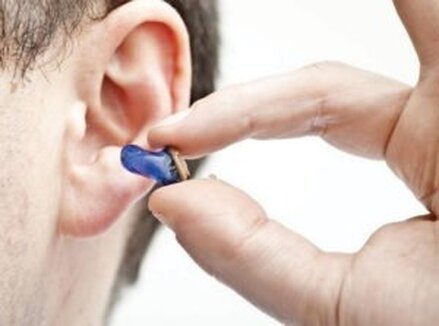Dr. Jack Wazen, Director of Research for Ear Research Foundation and Otolaryngologist with the Silverstein Institute weighs in on this highly-publicized correlation between hearing loss and cognitive decline. Dr. Wazen believes that many facets affect brain health. One of those is being able to hear well. As we age and our brain function begins to decline, we need to use all of the available methods to preserve our brain and bodily health. These methods include a healthy diet, exercise, socializing, brain stimulation and good hearing.
Over the past decade, there have been more and more evidential conclusions on studies related to hearing loss and cognitive decline. When there is auditory deprivation, there is a significant strain on the area of the brain that processes communication. This area of the temporal lobe is called the primary auditory cortex and it not only controls hearing, but also the way language is processed. Individuals that struggle with hearing often become less social, and therefore their cognitive decline is affected by less interaction and less mental processing.
If you are experiencing hearing loss, it’s important to seek a qualified otologist or audiologist, because they are trained to get you the best outcome and resolution for your specific issue. If you’ve noticed that it’s difficult to hear conversations in a noisy atmosphere, or you feel the need to adjust your television volume much higher than before, it’s vital for you to have your hearing checked.
What if I already have Hearing Loss?
If you already have hearing loss, it does not mean that you ultimately have brain dysfunction, but it is an important factor to consider because healthcare providers will agree that treating your hearing deficit is essential to lessen the chances or progression of cognitive decline. This is especially true if you have a family history or are at high risk for Alzheimer’s disease or dementia.
Hearing Aids and Cochlear Implants
There are two distinct parts to hearing; these include volume and clarity. Hearing aids help with the volume of sound, while cochlear implants (medical devices) help with the clarity of sound along with the volume when hearing aids are not enough. A cochlear implant bypasses the receptor cells by directly stimulating the nerve and consequently, is able to restore both volume and clarity simultaneously.
Cochlear implants restore hearing by bypassing damaged hair cells in the cochlea. These tiny hair cells are responsible for picking up the vibrations of sounds and sending them to the brain through the auditory nerve. When you suffer from hearing loss, your world becomes distorted. Individuals with substantial hearing loss often have difficulty understanding, following conversation, and deciphering sounds when there is loud background noise.
Ear Research Foundation
In 1979, the Ear Research Foundation was established in Sarasota, Florida by President and Founder, Dr. Herbert Silverstein. The Foundation was created out of his desire to continue research and development and to contribute to medical education in a private setting. In the field of Otolaryngology. A non-profit 501C-3 organization, Ear Research provides essential and innovative research, educational sessions to inform the community about hearing health and to train professionals in the field, and community care for people in need of hearing devices and care who could not otherwise afford it. Vital to the Ear Research Foundation is the strong partnership with Silverstein Institute.
Silverstein Institute
The Silverstein Institute has locations in Sarasota, Venice, and Lakewood Ranch. An internationally-respected physicians’ practice dedicated to diseases and surgery of the ears, nose, and throat. Silverstein Institute provides innovative, high-quality patient care. A state-of-the-art organization, the staff and physicians work together every day to improve the health and well-being of their patients.
Dr. Wazen, American Boards of Otolaryngology, Head and Neck Surgery, and Neurotology
Recognized repeatedly as one of Sarasota, New York, and American’s “Best Doctors”, Dr. Wazen is one of the nation’s leading authorities on hearing and balance disorders, pioneering new research that expanded treatments for people with single-
sided deafness and complex cases of hearing loss. He also is author of the seminal book, Dizzy, providing new treatment options and hope for people affected by balance and hearing disorders.
Start your path to better hearing, please contact the Silverstein Institute to schedule your appointment today.


